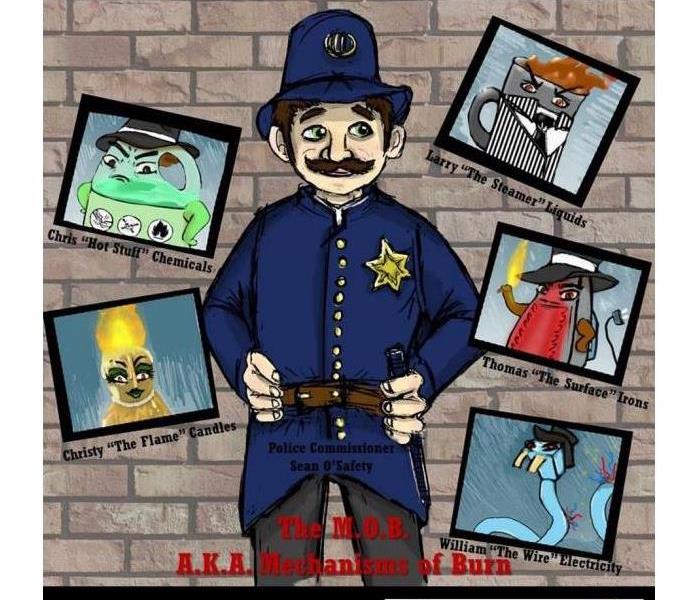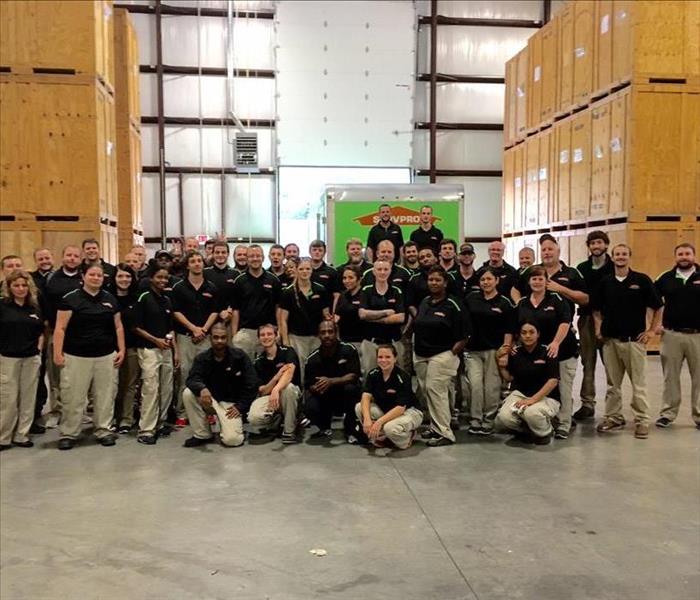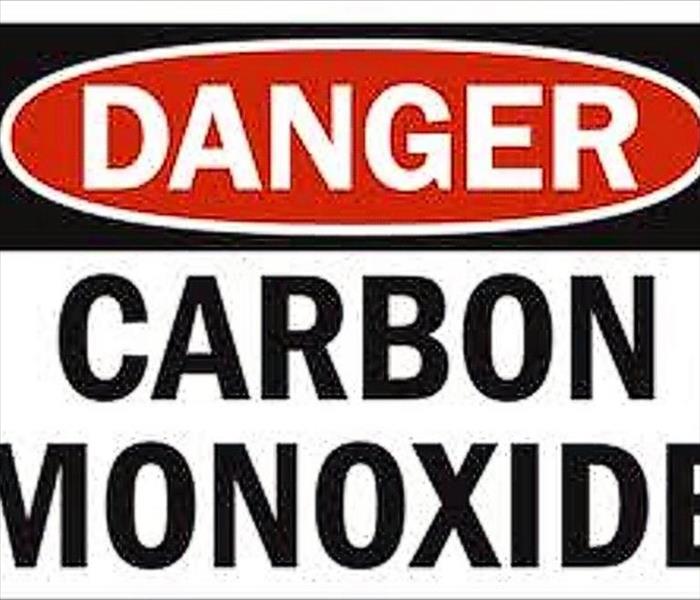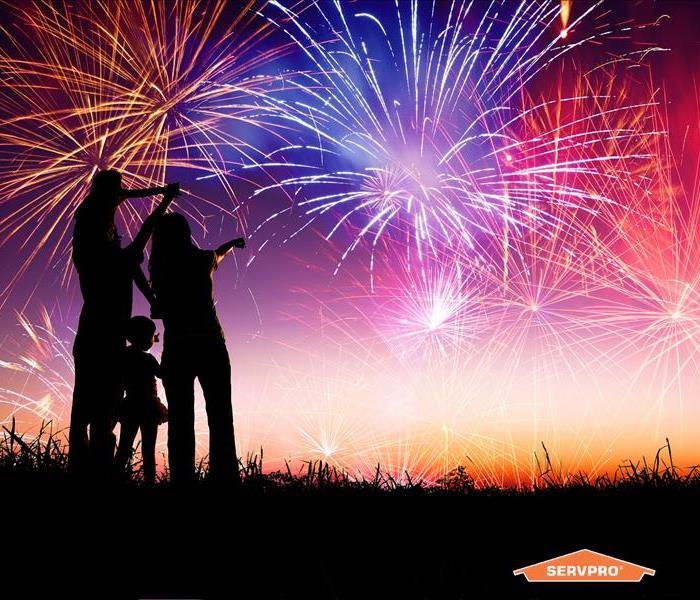Archived General Blog Posts
Burn Awareness Week February 5th- 10th 2017
2/9/2017 (Permalink)
Every year, the first full week of February is dedicated to Burn Awareness. According to the American Burn Association, “this is designed to provide an opportunity for burn, fire and life safety educators to unity in sharing a common burn awareness and prevention message in our communities.”
Here are the facts provided by the ABA:
- Burn injuries continue to be one of the leading causes of accidental death and injury in the United States.
- Between 2010 and 2014, approximately 486,000 people were seen in Emergency Departments for treatment of non-fatal burn injuries.
- In 2014 alone, there were 3,275 deaths from fires, which includes 2,795 deaths from residential fires, 345 from vehicle crash fires, and 135 from other sources.
- One civilian fire death occurs every 2 hours and 41 minutes.
- The odds of a U.S. resident dying from exposure to fire, flames or smoke are 1 in 1442.
- The primary causes of injury include fire-flame, scalds, electrical and chemicals.
- Men are more likely to be burned than women (68% males and 32% females were seen at a burn unit).
- Most of the injuries occur in the home (73%) followed by work (8%)
- Tragically, children, the elderly, and the disabled are especially vulnerable to burn injuries, and almost one- third of all burn injuries occur in children under the age of 15.
- Children under five are 2.4 times as likely as the general population to suffer burn injuries that require emergency medical treatment.
- Young adults ages 20-29 have a probability of burn injury that is roughly 1.5 times the risk of the general population.
- Today, 96.8% of those who suffer burn injuries will survive. Unfortunately, many of those survivors will sustain serious scarring, life-long physical disabilities, and adjustment difficulties.
With these facts and statistics, it is easy to see why it is so important for the community to understand the dangers that come from burns. Especially when it comes to fire prevention, it is important to take precaution and the necessary steps to prevent possible disasters and injuries.
If you experience and fire in your home or business, call the trusted professionals who have been fighting fire damage for over 30 years. SERVPRO of Richmond is faster to any size disaster and can handle your fire damage with professionalism and precision.
31st Anniversary!
12/9/2016 (Permalink)
Today marks the 31st anniversary of SERVPRO of Chesterfield!
The growth of our franchise over the years has been phenomenal! What started out in a 10 X 10 room, has grown into a 50,000 square foot warehouse - employing up to 100 fantastic team members.
We couldn't have come this far without the support of our local communities in Richmond, Henrico and Tri-Cities and especially in Chesterfield. Thank you to our customers and clients for choosing Team Bahen to combat your disasters. Whether it's a fire, water, mold damage, or even a simple carpet cleaning, we are always here to help!
SERVPRO of Richmond, Chesterfield, Henrico, & Tri-Cities, Plus is so excited for the future growth of our franchise. Here's to 31 more years!
Prevent Carbon Monoxide Exposure This Winter
9/20/2016 (Permalink)
You Can Prevent Carbon Monoxide Exposure
- Do have your heating system, water heater and any other gas, oil, or coal burning appliances serviced by a qualified technician every year.
- Do install a battery-operated or battery back-up CO detector in your home and check or replace the battery when you change the time on your clocks each spring and fall. If the detector sounds leave your home immediately and call 911.
- Do seek prompt medical attention if you suspect CO poisoning and are feeling dizzy, light-headed, or nauseous.
- Don't use a generator, charcoal grill, camp stove, or other gasoline or charcoal-burning device inside your home, basement, or garage or near a window.
- Don't run a car or truck inside a garage attached to your house, even if you leave the door open.
- Don't burn anything in a stove or fireplace that isn't vented.
- Don't heat your house with a gas oven.
Firework Safety!
6/30/2016 (Permalink)
The 4th and Fireworks
It’s that time of year again! Outdoor barbeques, cook-outs, summer beach vacations, and of course, fireworks! Whether you’re celebrating in your red, white and blue this weekend, or just enjoying a little backyard firework show this summer, knowing firework safety might help protect you and your loved ones from the potential harms of mishandling fireworks.
THE FACTS
According to the U.S. Consumer Product Safety Commission, their staff received reports of 11 non-occupational fireworks-related deaths occurring in 10 incidents during 2014. Four victims died in house fires caused by fireworks and seven victims died from direct impacts of fireworks.
It was also reported that fireworks were involved in an estimated 10,500 injuries treated in U.S. hospital emergency departments during calendar year 2014.
There’s no doubt that everyone enjoys watching those mesmerizing array of colors shooting into the sky, so here are some recommended safety tips from the National Council on Firework Safety:
- Obey all local laws regarding the use of fireworks.
- Know your fireworks; read the cautionary labels and performance descriptions before igniting.
- A responsible adult SHOULD supervise all firework activities. Never give fireworks to children.
- Alcohol and fireworks do not mix. Save your alcohol for after the show.
- Wear safety glasses when shooting fireworks.
- Light one firework at a time and then quickly move away.
- Use fireworks OUTDOORS in a clear area; away from buildings and vehicles.
- Never relight a “dud” firework. Wait 20 minutes and then soak it in a bucket of water.
- Always have a bucket of water and charged water hose nearby.
- Never carry fireworks in your POCKET or shoot them into METAL or GLASS containers.
- Do not experiment with homemade fireworks.
- Dispose of spent fireworks by wetting them down and place in a metal trash can away from any building or combustible materials until the next day.
- FAA regulations PROHIBIT the possession and transportation of fireworks in your checked baggage or carry-on luggage.
- Report illegal explosives, like M-80s and quarter sticks, to the fire or police department.
SERVPRO of Richmond would like to wish everyone a fun and safe holiday! And remember, you know who to call when disaster strikes!
SERVPRO of Richmond 804.740.6151






 24/7 Emergency Service
24/7 Emergency Service



